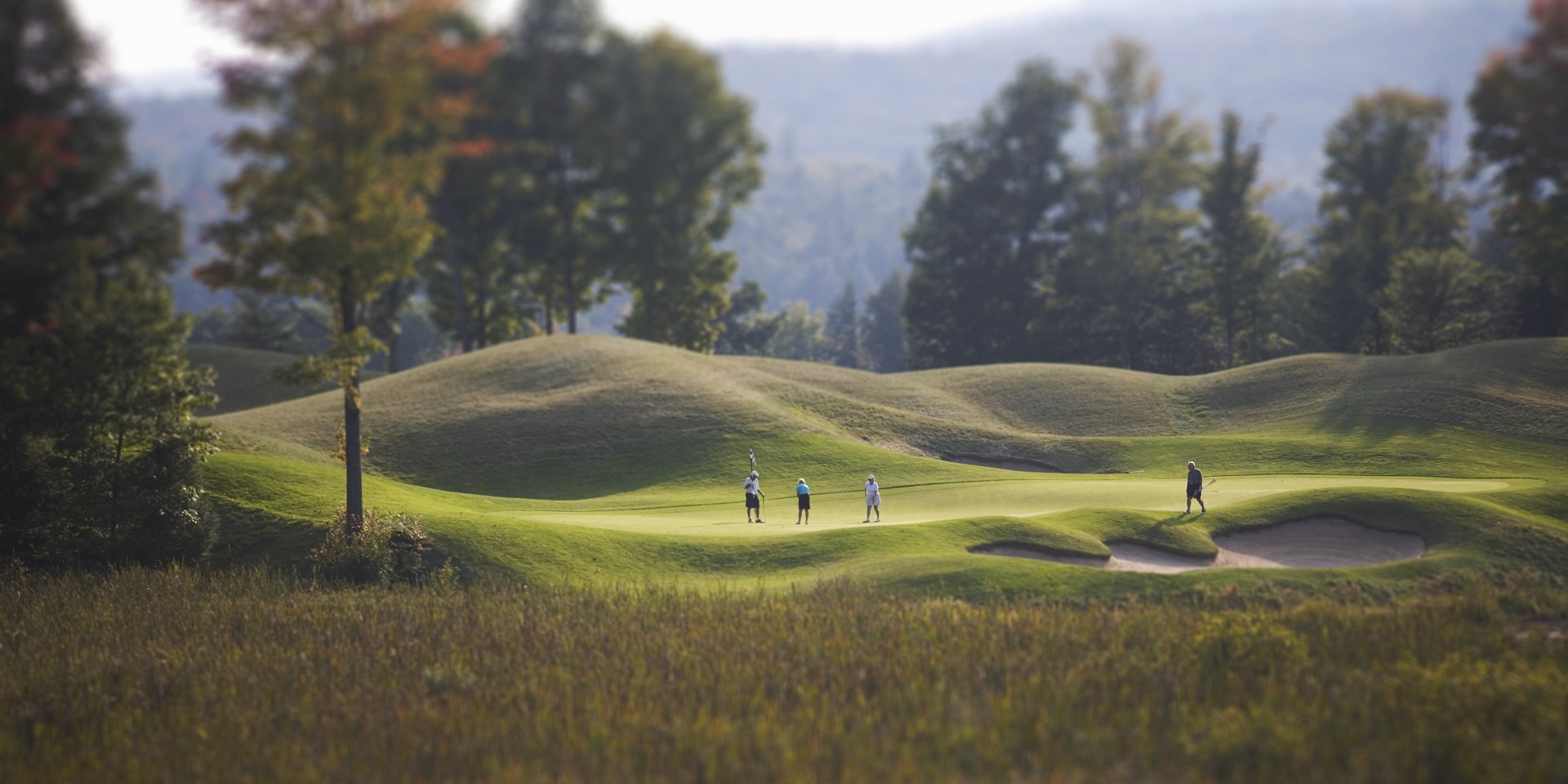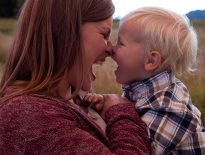Douglas Jacobs has a long pastoral and academic career, as well as many hobbies and interests. An accidental witness to an armed incident that changed his perspective on life and death, he shares his surprising experiences and lessons learned.
Dr Jacobs, what prompted me to invite you for this interview was your article “Thankful to be alive!”. Please start by telling us about the incident you describe in it.
I am a person with many hobbies and one of them is golf. I like to go to the driving range and hit a few golf balls. So, one afternoon in February, I arrived at the course around 4 or 4.30 pm. There’s a small concrete fairway covered with golf mats so that when it’s cold or raining, you can practise on these patches of artificial grass. There is a car wash across the road from the course.
It was a rather cloudy day and I was practising my shots when, at about 4.50, I suddenly heard gunshots. The two men next to me ran for cover nearby. I threw myself into the mud behind the small concrete platform.
As I lay there in the mud, the shooting continued. Many, many shots. I looked over and saw a man walking calmly down the road between the laundry and me, his hands in the standard position for a shooter. He was shooting very calmly into a black Mercedes that was in the vacuum cleaner area of the car wash. Then he and some other people jumped into two cars and drove off. We had some colleagues, two young men, who filmed the whole thing. They also immediately called the emergency number and within minutes the police, fire brigade and ambulances were there—dozens of people swarming all over the place. I think the shooter had fired at least nine shots, because the police marked nine shells. I counted another 15-20 near the black Mercedes later in the car wash. Four people had tried to kill two others. They followed them to the car wash, waited, watched them go in, then came out and started shooting at them. Relative to the shooter, I was about 30 metres from his gun—very close.
I was behind the shooter. There was a straight line between me and the black Mercedes, and he was standing halfway between and firing. I realised that if someone had shot back, I would have been right in the line of fire. So I immediately ducked my head and lay there in the mud. Two minutes after the shooting started, my wife called me on my mobile phone, which was in my pocket. The phone started ringing loudly and I thought that if the shooter heard the phone, he might turn around to see what was going on and notice me. So I picked up the phone and talked to her for six minutes. When we heard the first sirens, we stopped talking and hung up. Now here’s the amazing part: after this event, I didn’t remember her calling me. She had to take out her phone, look at the calls and tell me that she called me at 4.52pm, we talked for six minutes and when the sirens went off we hung up. That’s how I remembered it.
What had happened was that my memory had become very selective. I remembered the person who was shooting, I remembered what they were wearing, I remembered how calmly they were walking down the street trying to kill someone. But there were a lot of things that happened that I hadn’t noticed, but other casual witnesses had. I think I saw them, but the shock of the moment erased my memory. My memory became very selective at that moment.
What are your reflections after this observation that memory is unreliable?
There’s an interesting expression in English: “fog of war”. The fog of war is this selective memory that happens in moments of crisis. I think it can also happen in other traumatic experiences. There are some details that catch our attention. But there are other details that the mind doesn’t have the capacity to process at the same time. Everything happens very fast. If a member of an elite military unit trained for war were in that situation, they would remember every detail because they have gone through countless hours of training.
Those observations are very important. There are people who have been through tense situations, through conflict, through war, through serious personal danger, and when they try to recount the events, others question their memories because some things may be missing and others may be altered.
You raise a very important point. I have two daughters and the younger one works with women who have suffered sexual trauma, either rape or other abuse. Often in these situations one of the mechanisms we use to get through the trauma is to put a lid on everything, because we can’t deal with it all at once.
When it comes to tragedy, whether it’s sexual abuse or accidents or something like what I experienced, especially when the victims are young children, they are scarred for life. It was interesting that I didn’t feel any fear at first, but in the days that followed I began to feel the trauma. It took me two or three days to start writing. I didn’t trust myself to write, so I waited a few days, and after two or three days I put my memories and some pictures on Facebook. And I had about 130 comments. One of the comments was from the brother of the online editor of the Adventist Review. He sent the article to his brother, and his brother said, “Wouldn’t you like to rewrite it?” That’s how the article got there, but it took a while because I was still processing everything.
Two days later I went back to the golf course because I felt it was very important for me to go back and not be afraid of it. Golf shoes have these indentations in the soles where the mud collects, so we take them off and slap them together to clean them, and when someone did that I looked around very alarmed and asked myself, “Where did that shot come from?” When I go to the shop to buy food, I look at everyone suspiciously. I have changed, and I think that’s one of the dangers of trauma: you don’t just forget things, you start to look at people in a negative way. I’ve had problems with trust ever since.
I’ve learned not to believe that my memory is always correct. Maybe my wife’s memory of what happened is better than mine. So I shouldn’t tell her she’s wrong, I should say: “Yes, maybe I don’t remember the situation the way you do”.
Even though you were not the target, you were not personally threatened, you were still a victim. The incident lasted only a few minutes, but you still carry the wound, the scar. I can’t even imagine what it’s like to be in a war zone for months and years and know that you’re really a target.
I think for a lot of people, especially children, what happens probably changes the way the brain processes information. It changes it physically. There’s this fear factor that doesn’t allow them to feel safe. Our brains are very plastic, especially in children. There is something called the ACE test, which stands for Adverse Childhood Experiences. Because of the dangerous situations they experienced in childhood, people experience a degree of trauma, and that means they react differently to life.
There is a classic account of the first patient of the doctor who formulated this test, a woman who weighed almost 200 kilos. In a weight control clinic she lost up to 60 kilos. She became beautiful and suddenly men were interested in her. She had been sexually abused as a child and gaining weight was her only defence. When all these men started coming on to her, she remembered the abuse. In a single month she put on 14 kilos. She even ate at night. She’d wake up in the middle of the night and eat, and in the morning she’d find open tins, things from the fridge on the kitchen table. She put on more weight in a year than she had when she started losing it, because it was her way of protecting herself from the trauma she had experienced as a child.
The ACE test is very comprehensive and there are ten different categories of childhood experiences that affect people. There is also a simpler version with just ten questions, such as Were you sexually abused? Were your parents divorced? Was there drug use in your home? And other things like that.
I once had a student who failed his exam not once but twice. The professors knew he was married, had children, was studying to be a pastor, and couldn’t understand why he couldn’t pass the exam, why he couldn’t pull himself together and be more responsible. I gave him the ACE test. Research shows that if you have three or four out of ten adverse childhood experiences, your life expectancy is reduced by 20 years. This young man wrote to me after taking the test and said, “I have seven out of ten. I had quite a bad childhood”. I realised it was unfair to blame him for his failure. He needed spiritual and psychological help and compassion, and there were people who came in and helped him deal with these adverse experiences he had as a child.
I’m not in his situation. I’m not afraid to go back on the golf course. Just yesterday I went to practise and I didn’t even think about the shooting. It is also important that I live in a safe area. That incident was an anomaly, an unusual event. I don’t experience that kind of fear every day. But what if I had been a child in the dangerous zone of a city? What if I saw people being shot in the street every day?
We have no idea where a person comes from, what they experienced as a child or even yesterday. Students go to school and take standardised tests. But each person has a completely different history and context. Who is supposed to take these things into account, to show compassion and understanding, to mend broken hearts?
The prophecy of Jesus’s suffering in Isaiah 53 says He was pierced for our transgressions, tormented and oppressed, despised and forsaken by people.
So I think Jesus was the one who, when He saw people, looked at them and knew what they were going through. I think of specific people whom He treated with kindness and understanding. Isaiah also talks about a bruised reed that He would not break. This has helped me to look at some situations in a different way.
I want to make it very clear that I have still chosen not to defend myself with a gun, even though I have the right here in the United States to have a gun and to defend myself. I choose not to do that, but I will not rush to condemn others who are in the same situation, because I know that sometimes a gun could mean saving many lives.
Let’s talk a little more about this issue of gun ownership. For the rest of the world, for Europe, the idea that everyone should have a gun, often several guns, not just small ones, but even military weapons, is unthinkable. How do you explain this huge difference between European and American mindsets on this issue?
There are several reasons. When people first settled in America, it was a very wild country. So everybody had a weapon to hunt and to get food and to defend themselves. When we declared our independence in 1776, we didn’t have a formal constitution, we had what was called the Articles of Confederation, a very thin document that didn’t work very well, so we had a constitutional convention, the colonies got together and created the great document that became the American Constitution. But they needed some additions, so they came up with ten amendments at the beginning that are part of it. The Second Amendment makes it clear that a well-regulated military is necessary for the security of a free state, and that the right of the people to keep and bear arms shall not be infringed. There has been much debate about what that means: that every state has the right to have an army, or that every individual has the right to have a gun? And the Supreme Court has ruled that it means that every individual has the right to own a gun.
You are part of the same culture, yet you have chosen not to exercise your right to own and use a gun. What are the reasons for this decision?
There are several reasons for my decision, based on the belief that it is unacceptable for one person to take the life of another. Firstly, God is the Creator. God created life. And Satan, or Lucifer in the Bible, is the one who has rebelled against God and wants to destroy life. I have no right to take away the life that God has given to a human being. In the writings of the apostle Paul, it says that God has delegated to the state the right to take life when a person has lost the right to life through murder. But I am not the state, I am not the government, I am not a judge, I am not a jury. I don’t have the right to do that, and that’s the first reason.
The second reason is the sovereignty of God. If I take someone’s life, I take away God’s right to judge. How do I know whether that person is saved or not? But I know my personal relationship with God, I know I am secure in that relationship, so I would rather die than take the life of another person who may not have had the opportunity to accept Jesus Christ as Saviour.
This is the first time I’ve heard an argument from this perspective.
There’s also a challenge in that argument, and that’s what I felt as I stood there in the mud behind that concrete platform, because this man was trying to take someone else’s life. So do I have the right to take the life of someone who is involved in a mass attack and is trying to kill others? What if my family is in danger?
These are difficult questions. I saw an interview you did with Herbert Blomstedt, the great Swedish classical conductor. He said that we never have the truth—we are always close to it. And I found in the Bible that truth is always between two poles. We have God’s justice on one side and God’s love on the other. Somewhere in the middle they have to come together. And we Christians, because we’re Western-oriented, we don’t do well with the grey, with the complexity. We want answers in black and white logic. But Eastern thinking is more comfortable with some ambiguity. If we look at the stories in the Bible, God doesn’t give us easy answers. He often asks questions rather than giving answers. So I know where I stand on this issue. But I don’t always know where others should stand.
The third reason, in addition to God’s sovereignty, comes from a story I once preached on that has stayed with me for a long time. The prophet Elisha and his servant were in the city of Dothan. The Syrian king was trying to capture him because Elisha, as a prophet, had told the Israelite king where the Syrian king was going to attack, and his men had been ambushed. The king said, “Tell me! Which of us is on the side of the king of Israel?” And someone replied to him, “None of us, my lord the king, but Elisha, the prophet who is in Israel, tells the king of Israel the very words you speak in your bedroom”. The Syrian king ordered, “Go, find out where he is, so I can send men and capture him”. It didn’t occur to him that if someone knew what he was saying in his bedroom, he already knew what order he was giving now. Elisha was calm about the whole thing and slept well, and early in the morning his servant woke up, went out and saw the whole town of Dothan surrounded by Syrians and came back screaming: “Oh no, my lord! What shall we do?” And Elisha said to him, “Don’t be afraid. Those who are with us are more than those who are with them”. (In my opinion, this is one of the best lines in the Bible.) Then he prayed and said, “Open his eyes, Lord, so that he may see”.
The Lord opened his eyes and he saw chariots of fire surrounding the Syrians. The Syrians thought they were besieging Elisha, but it was they who were besieged. If we think about it, where did Elisha get this confidence? In chapter 2 of 2 Kings, he had seen his master, Elijah, go to heaven. And he had already seen the chariots of fire. God had opened his eyes and he knew. When we have a vision of God, when we have seen God and His protection all around us—and I saw this in the experience of my parents who went through a war in Bangladesh, I saw this with my students who survived in Iraq because God was with them—then we can say: “Those who are with me are more than those who are against me!” God has a much better solution than me to protect me.
If I had shot that man because I saw him shooting, I still wouldn’t have known if he was one of the ‘bad guys’ or someone who was shooting at the bad guys. I didn’t know whether he was ‘good’ or ‘bad’.
There’s a wonderful story I heard a few years ago. I was a pastor and I had a lot of Filipino members in my church in Florida. I went to visit a very old man who was dying and was told that he had been a pastor during the Second World War. He had been captured by the Japanese and the Japanese were prepared to execute him. Either they wanted to make an example of him or they didn’t have much ammunition, but they decided to kill him with a pipe. So they took him out naked in the public square of a town in the Philippines and the Japanese officer took a big heavy metal pipe to hit him over the head and kill him. When the Japanese officer got hold of the pipe, it broke into pieces and fell to the ground. The officer was so stunned that he ran away. The poor Adventist pastor was left standing in the public square with almost nothing on. It was a day of worship. So he did the only thing he could do. He walked the 40 miles home and surprised his family, who realised that God had saved him the day they prayed for him in church. God had saved his life and I was sitting in the same room with this man. He was dying, in his 90s, and after hearing about his experience I said to myself, “Why would I ever need to defend myself?”
Here’s another reason. Jesus said that those who live by the sword will die by the sword. He gave His life to save others, and I believe that as Christians we have to follow that example of Jesus and be willing to give our lives for others—rather than take the lives of others to save ourselves. That’s a long answer to the question, but it’s an answer that I’ve given a lot of thought to.
In European countries we don’t necessarily have to go through this whole internal process because it’s usually illegal to have a gun. But I think that even in such a context it is necessary for each person to think seriously about the issue and decide what position to take.
What I’ve learned from my situation is that if you don’t prepare, you won’t know what to do. I told you that my parents were in Bangladesh during that very brutal war. They had an elderly missionary couple with them. The husband had been shot in the wrist. His wife was so traumatised that she lost her memory for 24 hours. She didn’t know where she was, she didn’t know what was going on. But this remarkable woman, who had been a missionary in India for 40 years, did not say a word, did not do anything in those 24 hours that she would regret. And even though she didn’t know what she was doing, she spent her time preparing food, doing whatever was necessary. After that experience my prayer was: “Lord, if I ever lose my mind, may I be so accustomed to following Jesus that whatever I do without a mind will be the same as if I had a mind”.
I believe I am living in a time of preparation and I believe what the apostle Paul said: “In your relationships with one another, have the same mindset as Christ Jesus” (Philippians 2:5). When I fill my mind with Christ, I don’t have to be afraid and worry about these situations because I have a confidence that other people don’t have.
I can’t think of a better way to end our conversation. It is in the valley of the shadow of death that we see some of the most wonderful manifestations of grace and faith.
Douglas Jacobs has a long pastoral and academic career, as well as many hobbies and passions. An accidental witness to an armed incident that changed his perspective on life and death, he shares his surprising experiences and lessons learned.
Note: This is an interview by Adrian Bocaneanu. The transcript of the interview has been edited for brevity and clarity.



















